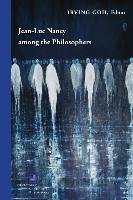"This is an excellent and erudite collection of well-written essays on a philosopher whose output continues to have timely relevance for wider social, political, and cultural issues. The chapters are organized to form a coherent arc with successive pairs of chapters providing elegant supplements to one another and bringing out certain thematic issues in Nancy's work (worlding, his relation to phenomenology, metaphysics). The topics are also carefully chosen, adding new dimensions on Nancy and extending previous scholarship on him in novel and thought-provoking ways."--Naomi Waltham-Smith, Author of Shattering Biopolitics: Militant Listening and the Sound of Life
This volume focuses on the relational aspect of Jean-Luc Nancy's thinking. As Nancy himself showed, thinking might be a solitary activity but it is never singular in its dimension. Building on or breaking away from other thoughts, especially those by thinkers who had come before, thinking is always plural, relational. This "singular plural" dimension of thought in Nancy's philosophical writings demands explication.
In this book, some of today's leading scholars in the theoretical humanities shed light on how Nancy's thought both shares with and departs from Descartes, Hegel, Marx, Heidegger, Weil, Lacan, Merleau-Ponty, and Lyotard, elucidating "the sharing of voices," in Nancy's phrase, between Nancy and these thinkers.
Irving Goh is Associate Professor of Literature at the National University of Singapore. He is the author of The Reject: Community, Politics, and Religion after the Subject, which won the MLA's Aldo and Jeanne Scaglione Prize for French and Francophone Studies, and L'Existence prépositionnelle. He is coauthor, with Jean-Luc Nancy, of The Deconstruction of Sex.
Contributors: Georges Van Den Abbeele, Emily Apter, Rodolphe Gasché, Werner Hamacher, Eleanor Kaufman, Marie-Eve Morin, Timothy Murray, Jean-Luc Nancy, and John H. Smith

